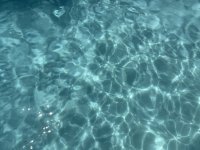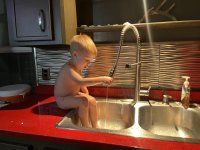- Jun 6, 2022
- 154
- Pool Size
- 20000
- Surface
- Plaster
- Chlorine
- Salt Water Generator
- SWG Type
- Hayward Turbo Cell (T-CELL-5)
I will be adding MA to lower PH per K-2006C tonight, but what should I attack after that? I put the numbers into the wheel for the first time, but I’m not exactly sure what that number tells me, other than it’s higher than desired. I really appreciate the help. I feel comfortable with the testing and basic numbers now thanks to you guys!
Crystal Clear
Temp 82
FC 5.2
CC 0
PH 8.0
TA 130
CH 130
CYA 40 (complete scrub and drain twice, was >400)
SI 1.1 (did I read this correctly?)
Crystal Clear
Temp 82
FC 5.2
CC 0
PH 8.0
TA 130
CH 130
CYA 40 (complete scrub and drain twice, was >400)
SI 1.1 (did I read this correctly?)

Last edited by a moderator:


